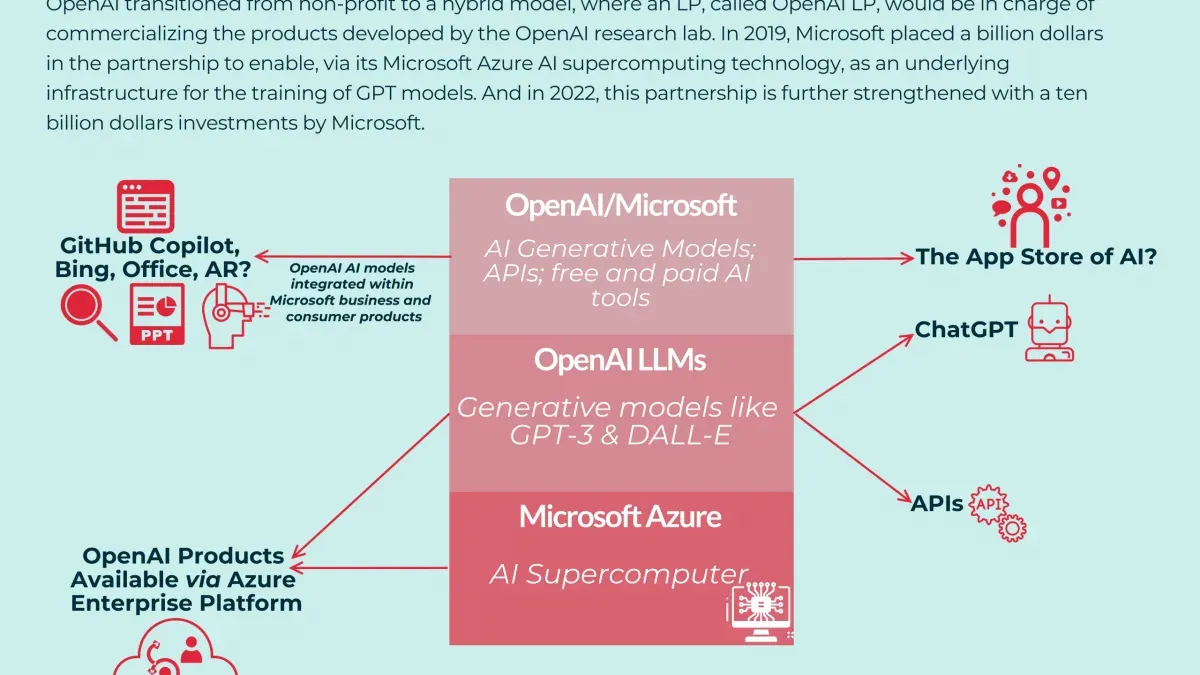Apple Intelligence is revolutionizing the way users interact with their devices, as it transitions from an opt-in feature to being automatically enabled in the latest iOS 18.3 update. This shift marks a significant change in how Apple integrates AI features into its ecosystem, allowing users to benefit from enhanced functionalities right from the initial setup. With the rollout of macOS 15.3 and iPadOS 18.3, Apple is making it clear that AI is at the forefront of their software development strategy. Notably, the Siri beta is also evolving, incorporating robust capabilities powered by Apple Intelligence that promise to enhance user experience. As Apple updates continue to refine and expand these AI features, users can expect a more intuitive and responsive interaction with their devices.
The concept of Apple Intelligence represents a new frontier in artificial intelligence within Apple’s software environments. By enabling this advanced technology in the iOS 18.3 and subsequent macOS 15.3 updates, Apple is setting a precedent for seamless user engagement through smart features and functionalities. This evolution emphasizes the integration of AI capabilities, particularly with Siri beta, to streamline user tasks and enhance overall efficiency. As Apple updates roll out, users will notice how these intelligent systems can intuitively respond to their needs, transforming everyday interactions with technology. Altogether, these developments underscore Apple’s commitment to staying at the cutting edge of AI in the digital landscape.
Introduction to Apple Intelligence in iOS 18.3
Apple Intelligence is a significant advancement in the realm of artificial intelligence (AI) integrated into Apple devices. With the release of iOS 18.3, Apple has transitioned from an opt-in model to automatically enabling Apple Intelligence features during initial device setup. This shift reflects Apple’s commitment to enhancing user experience through intelligent features while still providing users the option to opt out in the Settings app after setup.
Originally unveiled at the WWDC 2024, Apple Intelligence aims to leverage AI to streamline interactions across devices. By activating these features by default, Apple seeks to ensure that all users can benefit from the latest innovations without needing to navigate complex settings immediately. This update also aligns with trends in the tech industry, where companies like Microsoft and Google are rapidly deploying AI functionalities.
Key Features of Apple Intelligence in iOS 18.3
The iOS 18.3 update introduces several groundbreaking features powered by Apple Intelligence. These include enhanced Siri capabilities that allow for more natural interactions and smarter responses to user queries. The integration of AI features like Visual Intelligence enables users to add events directly to their calendars from visual content and identify flora and fauna, showcasing the potential of AI to enhance everyday tasks.
These advancements are not only limited to iPhone users but also extend to iPad and Mac users, particularly those utilizing devices with M1 processors or later. This broad compatibility ensures that many users can take advantage of the new functionalities, thereby enhancing productivity and interactivity across the Apple ecosystem.
The Impact of AI Features on User Experience
Apple’s decision to enable AI features by default in iOS 18.3 can significantly influence user experience. By making these features readily available, Apple is encouraging users to engage with the technology more intuitively. For instance, the integration of notification summaries and smart event creation can streamline daily tasks and improve overall device usability.
However, this shift also raises questions about user control and privacy. While Apple allows users to opt out of these features, it remains essential for the company to maintain transparency regarding data handling and feature functionalities. As AI continues to evolve, balancing user empowerment with advanced technology will be crucial for retaining consumer trust.
Navigating the Apple Intelligence Settings
For users who prefer to manage their settings more granularly, navigating to the Apple Intelligence & Siri section in the Settings app post-setup is vital. This area allows users to customize which AI features they want enabled, ensuring a personalized experience tailored to their needs. The option to opt out emphasizes Apple’s recognition of diverse user preferences regarding AI integration.
The Settings app provides a user-friendly interface where individuals can toggle features on or off as they see fit. As the technology landscape evolves, it’s crucial that users are educated about these features, how they impact device performance, and the overall experience.
Apple Intelligence Compatibility Across Devices
Apple Intelligence is designed to function optimally across a range of devices, specifically targeting the iPhone 15 Pro series, iPhone 16 series, and iPhone 16 Pro series. This selective compatibility ensures that users with the latest hardware can fully utilize the advanced AI features that Apple has developed. Moreover, the inclusion of earlier models with M1 processors broadens accessibility for iPad and Mac users.
This strategic compatibility not only highlights Apple’s commitment to providing cutting-edge technology but also ensures that legacy system users can still experience the benefits of AI advancements without needing to upgrade their devices immediately.
AI Features in macOS 15.3: Expanding the Ecosystem
Alongside iOS 18.3, the macOS 15.3 update introduces its own set of AI-driven features, including the much-anticipated ‘Genmoji.’ This feature, initially launched on iPhone and iPad, allows users to create and send personalized emoji based on their preferences, showcasing the seamless integration of AI in enhancing user interaction.
By extending Apple Intelligence functionalities to macOS, Apple reinforces the interconnectedness of its ecosystem. Users can enjoy a cohesive experience across devices, making tasks more efficient and enjoyable. The focus on generative AI in both iOS and macOS reflects Apple’s strategy to stay competitive in a rapidly evolving tech landscape.
Siri Beta Features in iOS 18.3
With the rollout of iOS 18.3, users will notice several enhancements in Siri’s functionality, many of which retain the ‘beta’ label. This designation indicates that while features are operational, they may still undergo adjustments based on user feedback. Such an approach allows Apple to refine Siri’s capabilities continuously while encouraging user participation in its improvement.
The beta status of these features serves as a reminder of the ongoing evolution of AI within Apple’s ecosystem. Users can expect regular updates and enhancements, as Apple gathers data on how these features are utilized in real-world scenarios, ultimately leading to a more refined and capable virtual assistant.
User Feedback and Future Updates
As Apple rolls out updates like iOS 18.3, user feedback becomes crucial in shaping the future of Apple Intelligence. The company encourages users to share their experiences, highlighting areas for improvement or new feature requests. This engagement helps Apple prioritize updates and refine existing functionalities to better meet user needs.
Incorporating user feedback not only enhances the effectiveness of Apple Intelligence but also fosters a community of informed users who feel valued in the development process. This collaborative approach is essential for ensuring that future updates align closely with user expectations and technological advancements.
Comparing Apple Intelligence with Competitors
When evaluating Apple Intelligence against competitors like Microsoft and Google, it’s evident that Apple is focusing on user privacy while implementing AI features. Unlike some competitors that may prioritize data collection, Apple has consistently emphasized user control over personal data. This distinction is critical as consumers become more aware of data privacy issues.
The competitive landscape for AI features is rapidly evolving, and Apple’s strategy aims to position itself as a leader in delivering intelligent functionalities without compromising user privacy. By focusing on high-quality features that respect user autonomy, Apple may foster greater loyalty among its customer base.
Conclusion: The Future of Apple Intelligence
As Apple continues to innovate with updates like iOS 18.3 and macOS 15.3, the future of Apple Intelligence looks promising. With a commitment to integrating AI seamlessly into user experiences, Apple is poised to remain at the forefront of technological advancements. The introduction of automatic feature activation reflects a proactive approach to user engagement.
Looking ahead, it will be essential for Apple to balance the introduction of new features with user feedback and privacy concerns. As AI technology progresses, maintaining this equilibrium will not only enhance user satisfaction but also solidify Apple’s reputation as a leader in consumer technology.
Frequently Asked Questions
What is Apple Intelligence in iOS 18.3?
Apple Intelligence is a suite of AI-powered features introduced by Apple that enhances device functionality. Starting with iOS 18.3, these features are automatically enabled during setup for supported devices, improving user experience through automation and smart suggestions.
How can I opt out of Apple Intelligence features on iOS 18.3?
To opt out of Apple Intelligence features in iOS 18.3, navigate to the Settings app after completing the initial setup. Locate the ‘Apple Intelligence & Siri’ section to disable the features you do not want.
Which devices support Apple Intelligence in iOS 18.3?
Apple Intelligence features are enabled by default in iOS 18.3 for the iPhone 15 Pro series, iPhone 16 series, and iPhone 16 Pro series. Additionally, any iPad or Mac with an M1 processor or newer is compatible with these features.
What new AI features are included in the iOS 18.3 update?
The iOS 18.3 update introduces several AI features under Apple Intelligence, including ‘Visual Intelligence’ which allows users to add calendar events from flyers and identify plants and animals in images. It also enhances notification summaries.
Is Apple Intelligence a beta feature in iOS 18.3?
Yes, Apple Intelligence features in iOS 18.3 are labeled as ‘beta.’ This designation indicates that while users can access new functionalities, some features may still undergo improvements based on user feedback.
How does Apple Intelligence compare to AI features from Microsoft and Google?
Apple Intelligence, similar to AI features from Microsoft and Google, aims to integrate generative AI capabilities directly into user devices, enhancing functionality and user experience. Apple has opted to enable these features by default, following industry trends.
What should I do if I encounter issues with Apple Intelligence in iOS 18.3?
If you experience issues with Apple Intelligence in iOS 18.3, consider reporting feedback through the Feedback app or consult the Apple Support website. Remember that some features are in beta and may have occasional glitches.
What is the ‘Genmoji’ feature in macOS 15.3?
The ‘Genmoji’ feature in macOS 15.3, which was introduced in iOS 18.2, allows users to create personalized emojis using AI. This feature enhances user interaction by allowing for more expressive communication.
Are there any security updates included in iOS 18.3 along with Apple Intelligence?
Yes, the iOS 18.3 update includes several bug fixes and security updates alongside the introduction of Apple Intelligence features, ensuring that users benefit from both enhanced functionality and improved device security.
What is ‘Visual Intelligence’ in the context of Apple Intelligence?
‘Visual Intelligence’ is a new feature within Apple Intelligence that enables users to extract information from images, such as adding events to calendars from flyers or identifying plants and animals, thereby enriching user interaction with visual content.
| Aspect | Details |
|---|---|
| Introduction of Apple Intelligence | Automatically enabled in iOS 18.3 after initial setup. |
| Opting Out | Users can opt out in Settings after setup. |
| Compatibility | Enabled by default on iPhone 15 Pro, iPhone 16 series, and Macs with M1 or newer processors. |
| Generative AI Features | Apple follows Microsoft and Google in rolling out AI features, now enabled by default. |
| Visual Intelligence Features | New features allow calendar events from flyers and identifying plants and animals in images. |
| Notification Summaries | Changes include disabling summaries for some apps and individual app control from the lock screen. |
Summary
Apple Intelligence is a significant update that reflects Apple’s commitment to integrating advanced AI features into its ecosystem. With the automatic enabling of Apple Intelligence in iOS 18.3, users can expect a seamless experience, although they retain the option to opt out post-setup. This shift not only enhances user interaction with devices by leveraging generative AI but also places Apple in direct competition with tech giants like Microsoft and Google. The introduction of features such as Visual Intelligence and improved notification summaries exemplifies Apple’s innovative approach in enhancing user convenience while maintaining robust security and functionality.










